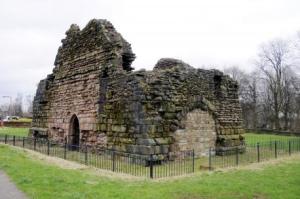Archaeology in England is in the middle of its worst crisis ever according to Jane Greenville of the CBA. Speaking at the CBA winter meeting in London in February 2014 she highlighted the cuts in local authority budgets which make it possible that the provision of county archaeological services, established in the 1970s and 1980s, may turn out to be just a generational phenomenon. This warning comes at a time when local councils have been setting their budgets for the financial year 2014/15. One of the trends is the cutting of planning services, including archaeological planning advice and conservation officer posts. The announcement on the 4th March of budget cuts by North Yorkshire County Council that will include a reduction in the budget of the Waste and Countryside Services unit of £470,000 which encompasses archaeology is just a recent example. Other councils that have announced cuts affecting archaeological services in the last 12 months include Cheshire West and Chester, the City of York, and Teesside. A disproportionate number of these are concentrated in councils in the midlands and north.
A series of joint surveys by ALGAO, IHBC and English Heritage down to February 2014 provided figures for the 86 English local Authorities involved in archaeology provision.1 As of the 1st April 2014 local authority staff will have fallen by just under 12 per cent, the largest ever annual fall. The number of such posts, at 295

Continuing local authority cuts make the future management of ancient monuments such as Radcliffe Tower, Bury, GM, uncertain
, is now below 300 for the first time this century, having reached 410 posts in 2005 and 401 in 2008. North West England was amongst the worst-hit regions. Although only representing around 7 per cent of the profession in England in 2012/13 local authority archaeology staff were responsible for enabling over £120 million in archaeological project income for the heritage sector, covering around 6000 projects, supporting over 60 percent of the c. 5500 professional archaeologists in Britain in 2013.
This crisis is made worse by the uncertainty surrounding the future of English Heritage, recent cuts to university archaeology courses and departments, and cuts to the funding local museums and art galleries. Thus, every professional sector of archaeology is being affected, which is why the All Parliamentary Party Archaeology Group has undertaken an enquiry into the future of local government archaeology planning advice.2 82 organisations submitted written evidence in February and face-to-face evidence was given in March, with a report due to be presented to the Culture Minister in May. Inexplicably, the only sector not to give evidence was university archaeology, neither collectively nor individually, once again emphasising the growing disconnect with the rest of the sector, and in particular professional archaeology which the universities helped to found in the 1970s and 1980s.
The consequences of these local government cuts could be a two tier system, a north-west/south-east division in archaeological provision based upon wealth rather than need or importance.3 Does this matter? After all cuts are being made in schools, hospitals and social services budgets across England. YES it matters – because archaeology is a finite resource and its loss can’t be replaced. Archaeology is for all as it is about our shared historical journey, and such losses diminish our shared cultural heritage.
What can individuals do? Well amongst other things highlight the importance of archaeology to your local council and MP whenever possible. Keep an eye on local planning applications that should include archaeology but don’t. Finally, lobby for the Historic Environment Record and the planning advice that goes with it to be made statutory.
1. http://www.helm.org.uk/guidance-library/fifth-report-la-staff-resources/5th-rep-LAStaff.pdf accessed 14 February 2014.
2. ‘The future of local government archaeology services: an inquiry for the Minister for Culture, Communications and Creative Industries, led by John Howell MP and Lord Redesdale and supported by The Archaeology Forum: call for written evidence.’ See http://www.archaeologists.net/sites/default/files/node-files/The_future_of_local_government_archaeology_servicesCALLFORWRITTENEVIDENCE.pdf accessed 14 February 2014.
3. As foreshadowed by Norman Redhead (former County Archaeology for Greater Manchester and now senior cultural heritage manager for the Greater Manchester Archaeological Advisory Service based at the University of Salford) in 2012: ‘The state of Local Government Archaeology’, Current Archaeology Issue 267 (2012), 48-49.



Please explain — doesn’t the Developer Pay in England? If the county councils of Sweden lost archaeological funding like you describe, then this would not have any noticeable effect on the volume of paid fieldwork. Developer pays, not council. From evaluation to printed excavation report.
But the council archaeology planning service provides most of the advice from which developer archaeology results. Take that away and very little developer-funded archaeology will happen – with a huge loss of knowledge ensuing (there are around 4500 pieces of developer-funded, local authority-identified pieces of archaeological work in the UK each year).